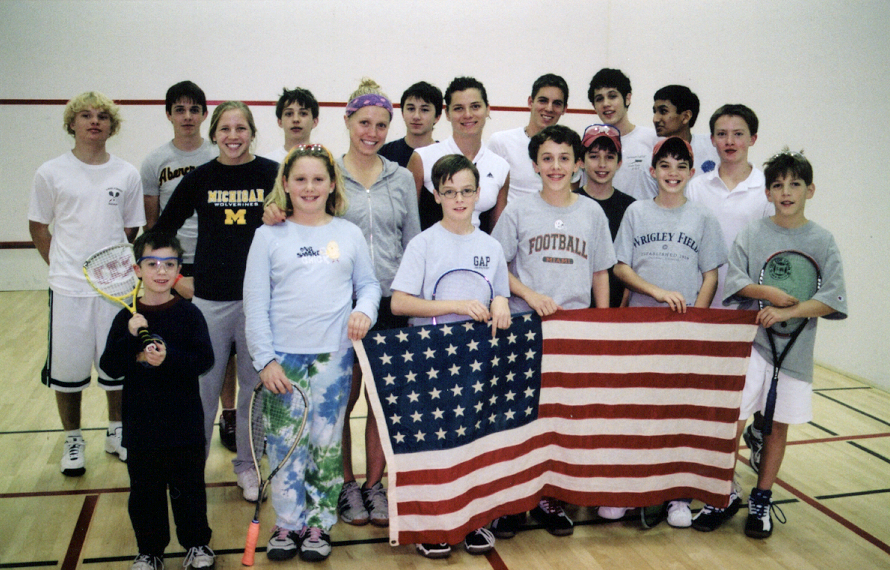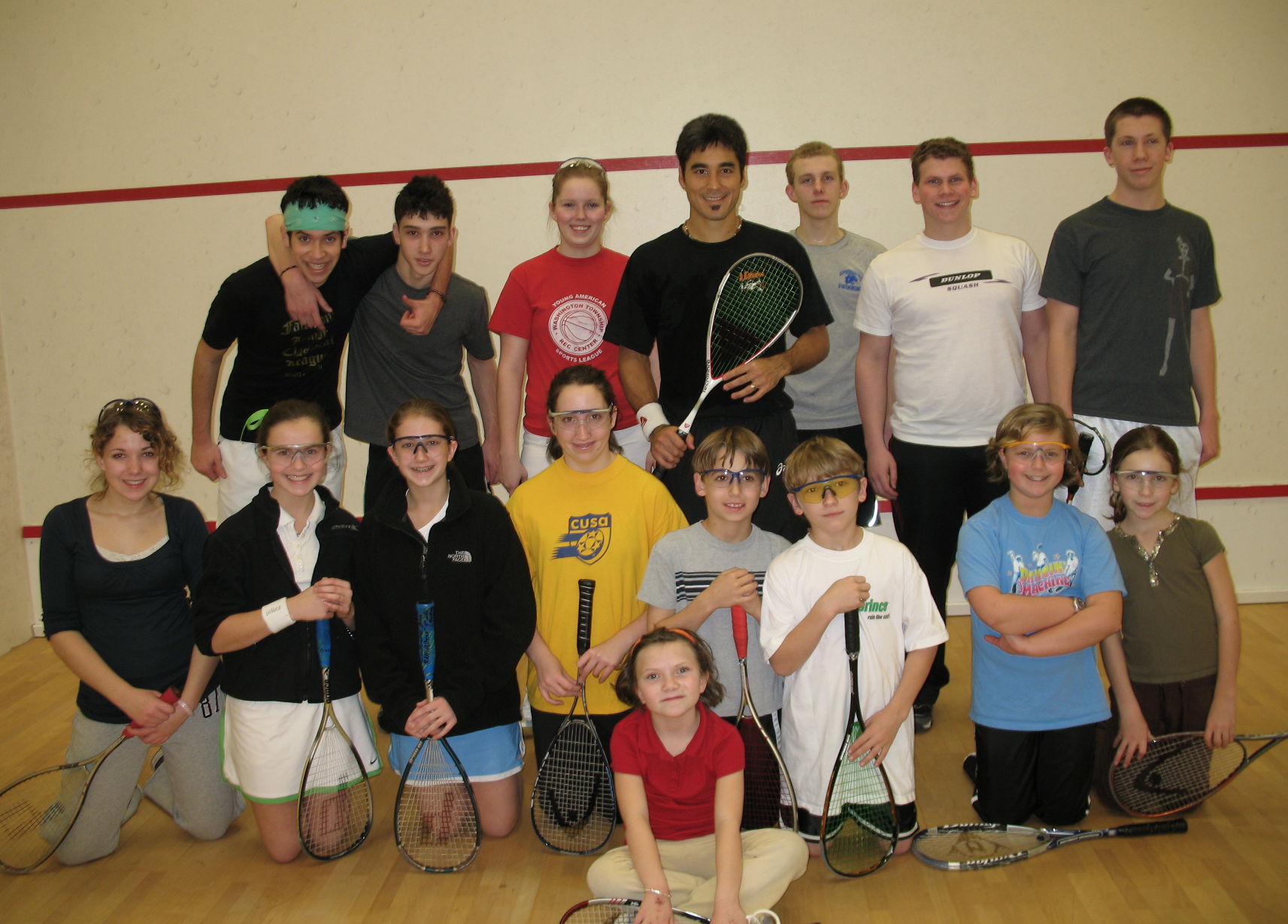By Kevin Klipstein
After attending the first Briggs Cup at the Apawamis Club in Rye, NY, back in 2003, US Squash (USSRA) board member and Junior Committee Chair David Barrett thought to himself, “Now that’s a great idea. Why aren’t we doing an event like this to raise money to support junior squash nationally?” Barrett, who was also on the Tournament Committee for the North American Open Doubles Championship (NAO) hosted in Greenwich every year, talked with Peter Briggs himself, and other backers of the benefit tournament, to get advice on how to adapt the approach to the NAO.

And the outcome of these conversations?
The NAO, started in Greenwich in 1931, and likely the most prestigious doubles tournament in the United States, was, in 2004, run for the first time as a fundraiser for US Squash. Taking a page from the Briggs Cup model by soliciting tournament patron support, and adding to it by following the PGA Tour’s lead of offsetting prize money with sponsorship income, all net income from the event is donated to US Squash. The NAO, which recently combined forces with WISPA’s Greenwich Open, and strong backing from North Sound Capital and the seemingly ubiquitous Harrow Sports, allows the event to offer the prize money needed to attract the best players in the world in doubles and women’s singles—and makes this event unique in combining the ISDA and WISPA tours.
Broadening horizons
Sharing Barrett’s passion for the promotion of junior squash, and serving as Chair of the US Squash Junior Committee in the1990’s, Bill Broadbent and his wife Camille had founded the US Squash Junior Development Endowment Fund in 1996. Distributions from interest earned by the Junior Development Endowment Fund go towards grants to support grassroots and urban squash programs (75%) and junior national teams (25%), making the fund the perfect beneficiary of the event.
The fund, now over $650,000—with proceeds from the North American Open having added more than $150,000 since 2004—allows US Squash to provide support to new and existing programs introducing squash to juniors. Programs from across the country applied for grants in the 2006-2007 season. Among the recipients are:
• Lake Forest Squash A public park program since 1998, which provides low cost instruction to nearly 100 junior and high school team players at the local recreation center in a suburb north of Chicago. With only two converted racquetball courts, they will allocate funding to convert an additional two racquetball courts to increase their capacity to serve the community.
• Kidsquash A Harvard-based program founded in 2004, which serves dozens of local juniors every weekend. No fee is charged for squash instruction or activities, and all are accepted at the Saturday morning clinic. In addition to free squash instruction, the program places an emphasis on developing a healthy lifestyle through sports. Funding will supply equipment for the participants, provide a stipend to the coaches and allow the program to grow through awareness building activities.
• Dayton Challenge Junior Squash Program Started in 2001 and sponsored by the Miami Valley Squash Foundation, which includes over 100 middle school students from five schools, this program charges no fees to the schools or players. Participants receive instruction as a team once a week, and the program facilitates competition among the schools. Funds received offset transportation costs to add inner-city schools to the program.
• The Atlanta Squash After-School Program The program pulls together a diverse group of juniors from a range of schools in the area and provides squash instruction. The program also places an emphasis on overall fitness, flexibility and proper nutrition for all the participants. In coordination with local clubs, funds will be used to introduce squash to a broad group of middle and high school students in the area through mini-squash demonstrations at the schools.

And the action on court? Worth the price.
The results on the court this year provided a window to the future, with new champions crowned in both doubles and singles. Most significant was the defeat of six-time (a record by far) champions Damien Mudge and Gary Waite (Waite had won nine straight, the last six with Mudge). They were edged out by the red-hot team of Ben Gould and Paul Price, despite Mudge-Waite jumping to an early 2-0 lead in the finals.
Natalie Grainger, now a US citizen, played hard all the way through a tough half of the draw, which included defending champion Jenny Duncalf and No. 1 seed Vanessa Atkinson. Each of her matches took four or five games to win. In contrast, No. 2 seed Natalie Grinham won all of her matches in straight games. Grinham continued this trend in the finals by defeating Grainger in three closely contended games for the largest share of the $25,000 purse.
US Squash would like to thank the Tournament Committee, Tournament Co-Chairs David Barrett, Jack Farley and Oivind Lorentzen and the entire Greenwich community for their long-standing and generous support for this event.


